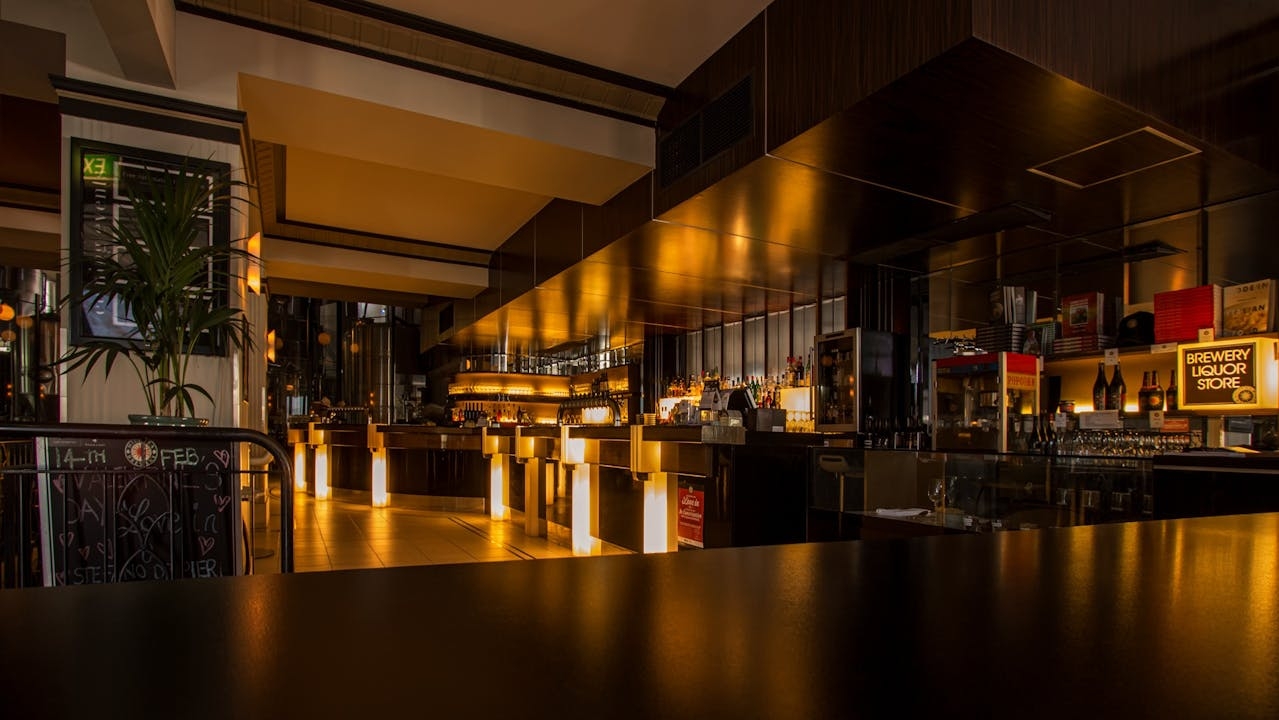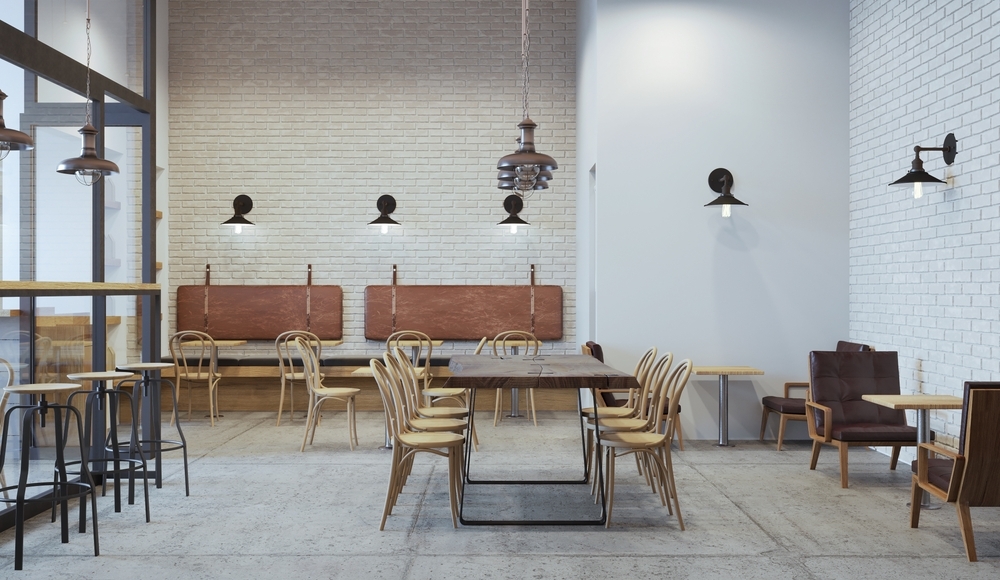Opening Up a Cafe: Your Essential Step-By-Step Guide for 2024
By Nikita Nielsen · 8. March 2024
Opening up a cafe? Start with the essentials: a unique idea, a target market, and a solid business plan.
In this step-by-step guide, we’ll show you how to navigate the legal requirements, select the right location, and source quality ingredients.
Ready to transform your vision💡 into a thriving cafe?
Key Takeaways
- Creating the perfect cafe vibe is all about the ambiance – envision it as setting a scene where every element plays a role, all designed to charm the coffee enthusiasts you’re aiming to attract.
- Crafting a business plan is more than just ticking off boxes; it’s the master plan that guides you through the complexities of finance and market research, illuminating the path to your cafe’s success.
- Embracing the digital age is an essential step for any cafe! Simple additions like a POS system or a user-friendly online ordering platform can help make your cafe operate more smoothly.
Crafting Your Unique Cafe Concept
 cafe co-working space
cafe co-working space
Breaking into the cafe market is challenging. To stand out, you need to create a distinctive cafe concept that resonates with customers.
Whether your dream is to open a bustling espresso bar or a tranquil book cafe where stories and aromas blend, your cafe’s concept must echo your unique vision and personal flair.
Wondering how to make that vision a reality? It’s all about attention to detail. The theme, layout, colour palette, lighting, furniture, and decor all play a part in setting the stage for your cafe’s identity.
Your menu display and cafe design are the stars of the show, captivating customers’ attention and inviting them to partake in your coffee experience.
Defining Your Target Market
Your vision for your cafe should cater to a diverse customer base, offering a haven not only for coffee connoisseurs but for lovers of all beverages.
Identifying your target market goes beyond just coffee aficionados; it includes tea enthusiasts, smoothie fans, and even those who relish a rich hot chocolate.
Your market research should encompass a comprehensive understanding of potential customers’ demographics, such as:
- age
- gender
- personal preferences
Understanding your customers can help small business owners tailor their cafe or coffee shop to their tastes and lifestyles, making you a successful cafe owner and your own boss.
By observing the preferences of patrons who visit cafes, you can gain valuable insights to apply in your own business, such as offering free promotions to attract new customers.
Tailoring your cafe’s concept, theme, and offerings to your target audience’s interests and lifestyles can create an irresistible allure, encouraging repeat visits.
Ambiance design choices such as lighting, colours, seating, and decor need to be tailored to the preferences of your target audience to create a welcoming and comfortable environment.
Creating a Distinctive Atmosphere
Every component of your cafe contributes to its unique atmosphere. Some key elements to consider include:
- Comfortable seating options
- Appropriate music
- Outdoor seating
- Greenery
- Unique design features
The choice of colours and lighting can also create a warm and inviting ambiance, impacting the mood and atmosphere of your cafe.
The furniture and seating options should not only be comfortable but also consider space and customer comfort.
Unique decor, such as vintage signs, wall art, or local artwork, can add character and create a memorable cafe experience.
All these elements should be reflected in your dining room floor plan, which should be carefully designed to enhance the guest experience.
Developing a Comprehensive Business Plan
 Cafe Business Plan
Cafe Business Plan
With a unique concept and a well-defined target market in hand, you can now turn your vision into a robust cafe or coffee shop business plan.
A comprehensive business plan is a roadmap for your business journey, setting out your objectives and outlining how to achieve them.
It’s your cafe’s recipe for success🏆, blending the right mix of ingredients to ensure a smooth brew.
An executive summary, which provides a high-level overview of the business concept, target market, financial highlights, and service style, forms the heart of your business plan.
The plan should also delve into the coffee industry and market, and outline your management and day-to-day operations.
The financial forecast and expenses section of your business plan should detail your cafe’s long-term profitability and include cash flow statements, balance sheets, and a break-even analysis.
A well-drafted business plan can be a powerful tool for securing funding, especially if it forecasts your cafe’s growth over a three-year period.
Choosing the Perfect Location
 cafe location
cafe location
Choosing the right location can be the deciding factor in your cafe’s success, so it’s essential to take into account factors such as:
- The demographics of your target customers
- How your location intersects with their daily routines
- Researching the demand and competitive landscape in your chosen area
This research is essential to guarantee there’s enough potential customer interest to support your cafe.
Visibility and accessibility are key🗝️. Choose a location with high foot traffic, safety, and transportation or parking options, while also ensuring the entrance is welcoming and informative.
Locating your cafe near businesses that attract a similar customer base and reflect similar brand values can boost organic footfall from nearby attractions, offices, and urban areas.
It’s also crucial to consider the potential for future development in the area. A location where growth and urban development are likely can increase the attractiveness and accessibility of your cafe over time.
Navigating Licenses, Permits, and Regulations
With your concept, business plan, and location in place, your next step is to ensure legal compliance.
To operate legally, you’ll need to register your cafe with Companies House as a business entity or with HMRC if you’re set up as a sole trader.
Complying with food hygiene regulations is crucial in the food business.
This includes providing allergen information, following food labelling rules, and implementing food safety management systems like HACCP.
Additional licenses such as a Pavement Licence for outdoor seating and a Personal Licence for alcohol sales are necessary, and it’s beneficial to display a Food Hygiene Rating to bolster consumer confidence.
Sourcing Quality Ingredients and Supplies
 coffee beans
coffee beans
Now, let’s delve into the heart of your cafe – the selection of high-quality ingredients and reliable equipment essential for crafting an exceptional menu.
To create an enjoyable experience for customers, it’s critical to choose suppliers that can provide:
- A consistent and steady supply of diverse products
- Fresh, locally sourced ingredients for a variety of menu items
- Low minimum orders for specialty items
- High-volume capacity for popular products
- The ability to grow with your business and adapt to menu changes
Sustainability is a growing concern for consumers, so it’s important to assess the sustainability practices of all suppliers, seeking certifications like Fairtrade, Rainforest Alliance, and UTZ where applicable.
Evaluating the supplier’s reliability includes considering their delivery times, supply chain robustness, and responsiveness to market trends and customer preferences.
Quality equipment is crucial not just for coffee but also for preparing a wide range of food and beverages to the highest standard.
Researching and comparing offerings from multiple equipment suppliers can help ensure you get the best quality for all your cafe needs.
Designing an Efficient Layout and Workflow
 cafe shop interior
cafe shop interior
Designing your cafe isn’t just about looks, but also about efficiency. An efficient floor plan creates a welcoming ambiance and satisfying customer experience.
It allows guests to navigate intuitively and staff to manage tasks effectively.
Cafe layout components that should be considered for enhancing customer flow and experience include:
- Seating areas
- Coffee bar
- Prep areas
- Ordering queue
- Kitchens
Strategically arranging can boost efficiency and effective service during busy times.
Adhering to building codes for accessibility and emergency exits is crucial while optimizing the layout for smooth customer and food flow, task execution, and overall cafe success.
Implementing Effective Marketing Strategies
With your cafe ready to go, it’s time to get the word out! Implementing effective marketing strategies can be a game-changer for your cafe’s success.
Engaging customers on social media platforms by asking for feedback, showcasing menu items, and highlighting your cafe’s unique aspects can lead to increased involvement and satisfaction.
Forming partnerships with local businesses and hosting community events can help strengthen community ties, provide mutual benefits, and enhance your cafe’s local presence.
Creating incentives such as loyalty programs and special offers can encourage profitable customer relationships and repeat visits.
Remember, marketing isn’t a one-size-fits-all strategy. It’s crucial to:
- Analyze the results of your marketing campaigns to measure their success
- Track return on investment
- Adapt strategies accordingly to improve future marketing efforts.
Embracing Technology
In today’s digital world, leveraging technology can set your cafe apart from the competition.
Implementing a reliable POS system can streamline your operations, manage transactions, track sales, and provide insights into customer behavior.
A POS system can also boost operational efficiency by integrating with online ordering, delivery, loyalty programs, and automating offers based on performance.
Integrating an online ordering system offers customers the convenience of ordering at their own convenience and encourages exploring the full menu.
Beyond operational efficiency, technology also enhances the overall customer experience.
Amenities like free Wi-Fi and charging stations, along with comfortable seating, can improve the overall customer experience and enhance your cafe’s brand identity.
Ensuring Long-Term Success
Though launching your cafe is a thrilling achievement, securing its long-term success demands consistent effort.
Emphasizing core values and culture is essential for customer loyalty and employee satisfaction, which are crucial for the long-term success and profitability of a cafe.
Regular team-building activities and feedback sessions can also nurture a sense of community and open communication within the cafe, contributing to a positive work environment.
Additionally, establishing a network of dependable suppliers and service professionals, from local farmers to equipment specialists, ensures that the cafe operates without interruption, maintaining the high standards that customers expect.
Summary
In conclusion, opening a cafe is a thrilling journey that requires passion, dedication, and careful planning.
From crafting a unique cafe concept, developing a comprehensive business plan to choosing the perfect location, every step plays a crucial role in ensuring your cafe’s success.
By embracing technology, implementing effective marketing strategies, and fostering a strong company culture, you can ensure your cafe thrives in the long run.
Frequently Asked Questions
How profitable is opening a cafe?
Opening a cafe can be profitable, with the average profit margin ranging from 2.5% to 6.8%. If the cafe also roasts its own coffee, the profit margin can increase to 8.79%.
How much does it cost to open a cafe UK?
Starting a cafe in the UK can cost anywhere between £20,000 to £100,000, depending on factors like size, style, and location.
Is owning a cafe good money?
Owning a cafe has the potential to be very profitable, with a substantial gross profit margin from coffee sales, offering room for small, independent cafes to thrive within the first few years of operation. However, careful planning and budgeting for startup costs and ongoing expenses are crucial for long-term success.
Do you need a Licence to open a cafe?
Yes, you need to register as a food business with your local authority at least 28 days before opening a café.
What is the importance of a unique cafe concept?
A unique cafe concept is essential for making your cafe memorable and differentiating it from the competition. It’s all about creating an unforgettable experience for your customers.

